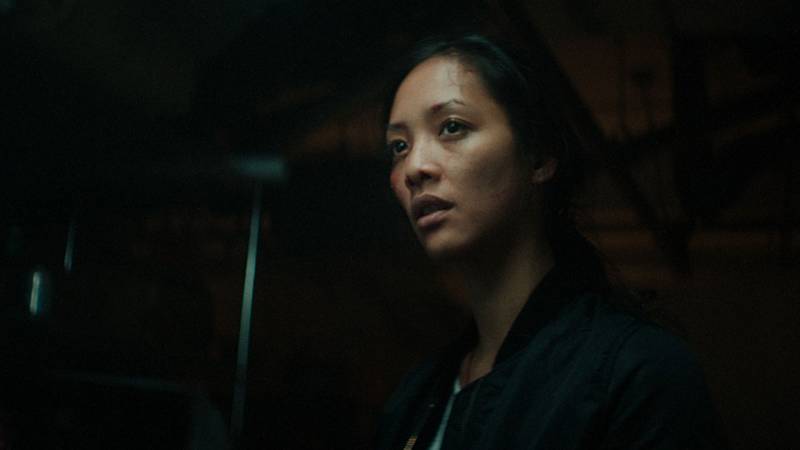In China, a “snakehead” is a human smuggler whose clients pay a lot of money to be transported illegally to the West. Sister Tse, the single-minded protagonist of Evan Jackson Leong’s pretty/gritty debut feature, Snakehead, doesn’t have any cash, so her only way of getting to New York is to sell herself: She’ll work off the debt—to a Chinatown crime family. You can guess what job they have in mind.
But Sister Tse (the wiry Shuya Chang) is both tougher and smarter than the rest, and escapes the brothel to win the respect and trust of ruthless Godmother Dai Mah (Jade Wu). Garnering more responsibility and bigger paydays (including a harrowing outing as a snakehead), Sister Tse keeps one eye on her balance owed and the other on her deep-secret raison d’être: The daughter she gave up years earlier, an innocent seedling in the foul Big Apple.
Snakehead, an implausible (though enjoyable) neon-and-crimson blend of lurid underworld saga, wishful maternal drama and arthouse postcard, is hardly the Hallmark card version of the Asian American experience. Its inclusion in CAAMFest (formerly the S.F. International Asian American Film Festival), as a gala presentation, no less, would have been controversial once upon a time. Not that that would have deterred the programmers; one of CAAMFest’s breakthrough—and continuing—accomplishments is demolishing the notion that an identity festival should only show positive representations. Or to put it another way, that culture (even pop) and art should function as public relations.
The risk always remains that portraits of flawed, complicated characters might be used to perpetuate stereotypes, I suppose. But if the last White House’s coining of “kung flu” and “Wuhan flu” told us anything, it’s that con men and bigots will use any pretense to manipulate their marks.



